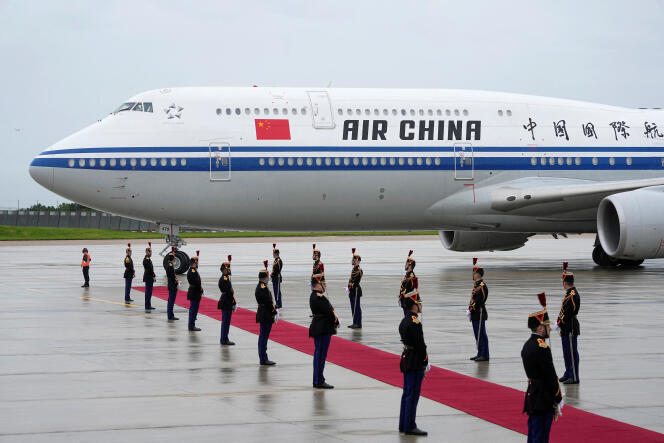


Chinese President Xi Jinping's visit to France on Monday, May 6, and Tuesday, May 7, is not only an opportunity to celebrate the 60th anniversary of diplomatic relations between France and the People's Republic of China, but also to relaunch the difficult dialogue between Beijing and Brussels on trade issues. Emmanuel Macron invited the President of the European Commission, Ursula von der Leyen, to a trilateral meeting with the Chinese leader that took place on Monday. The French president had already invited the European leader during his state visit to Beijing in April 2023.
This meeting is eagerly awaited as trade tensions between the European Union (EU) and China have recently intensified. In March 2023, just prior to her visit to Beijing, the head of the European executive presented, in a remarkable speech, a new doctrine aimed at reducing the risks and factors of dependence vis-à-vis this country. "But our relationship is unbalanced and increasingly affected by distortions created by China's state capitalist system," she said at the time. Indeed, by 2022, Europe's trade deficit with the "factory of the world" had reached almost €400 billion. Since then, it has not been significantly reduced.
Despite the initial reluctance of Germany, a major exporter to China, the EU, with the support of France, has decided to shed its naiveté and defend its interests against Beijing. Brussels is prioritizing the protection of industrial sectors related to green and energy transition, areas where Beijing is particularly aggressive. The EU has a number of trade defense tools at its disposal, such as anti-dumping investigations which, for example, have been targeting electric vehicle imports since October.
As a rule, the Commission initiates such investigations following complaints from aggrieved European companies. However, this time it decided to act on its own initiative because of the increase in Chinese vehicle imports, which are now congesting European ports. On Thursday, Valdis Dombrovskis, the commissioner in charge of trade, told the Politico news website that "the investigation is progressing," and should lead to the introduction of quotas or an increase in customs duties before the summer. The major Chinese groups targeted – BYD, SAIC (which owns MG), or Geely (which owns Volvo) – currently pay import duties of 10%, while European manufacturers must pay a 25% duty to enter China.
"Today, of the 185 conventional anti-dumping investigations underway in the EU, around 100 concern products imported from China," pointed out officials from the European executive. In addition to electric vehicles, Brussels is also investigating cases involving melamine panels, numerous steel by-products and electric bicycles.
You have 50.2% of this article left to read. The rest is for subscribers only.
